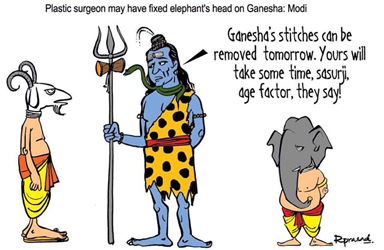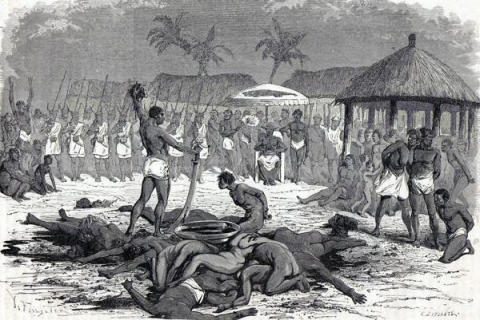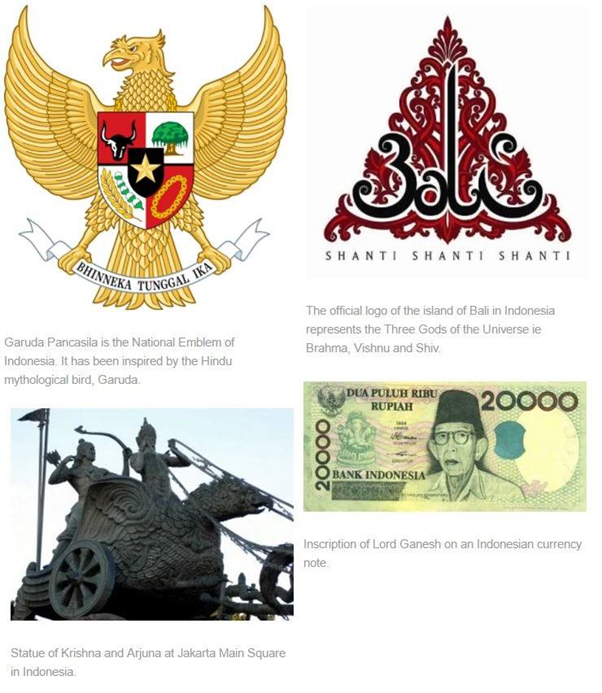Head transplant in Vedic period


Written by Sulaiman Razvi
Some doctors say head transplant is impossible and some say it could be possible in future. But Hindu gods used to do head transplant in the Vedic period after beheading. Instead of calling this as a miracle Hindus try to prove it scientifically. The most famous head transplant everyone knows is that of Ganesha after he was beheaded by Shiva and elephant’s head was fixed on his body. But there are few more such stories present in Hindu scriptures.
GANESH
Shiva Purana, Rudrasamhita 2, Kumara Khanda 4.16.34-35 “Securing this opportunity, the Trident-bearing deity came there and cut off his head with his trident. O Narada, when the head of Ganesa was cut off, the armies of the gods and the Ganas stood still.” Tr. J.L. Shastri
Shiva Purana, Rudrasamhita 2, Kumara Khanda 4.14.46-56 “On hearing what the gods said, Siva spoke thus ‘It shall be done accordingly so that there may be peace over all the worlds.’ ‘You shall go to the northern direction and whatever person you meet at first you cut off his head and fit it to this body.’ Brahma said: Then they carried out Siva’s behests and acted accordingly. They brought the headless body of Ganesa and washed it well. They paid homage to it and started towards the north. It was a single-tusked elephant that they met. They took the head and fitted it to the body. After joining it, the gods bowed to Siva, Visnu and Brahma…They said: ‘Since we all are born out of your brilliant Energy let that Energy come into it by the recitation of the Vedic mantras. Saying so, they jointly sprinkled the holy water, invoked by the mantras on that body after remembering Siva. Immediately after the contact of the holy water the boy was resuscitated to life and joined with consciousness. As Siva willed, the boy woke up as from a sleep.” Tr. J.L. Shastri
They would’ve beheaded even an infant if they saw an infant first in northern direction.
DAKSHA
Daksha was the father in law of Shiva. As per some versions he was beheaded by Virabhadra a form created by Shiva. To punish Daksha as Daksha started Yajna after censuring Shiva, he invited all gods and sages except Shiva. Shiva beheaded Ganesha and fixed elephant’s head and he beheaded Daksha and fixed a goat’s head, seems like he was fond of fixing animal head on human body,
Devi Bhagavatam 7.30.39-50. “…Though Mahâdeva lost everything on Satî’s departure, He, the Ocean of Mercy, destroyed the sacrifice of Daksa, cut off his head and instead placed the head of a goat, brought him back to life and thus made the Gods free from all fears.” Tr. Swami Vijnananda
Srimad Bhagavatam 4.7.3 “Lord Śiva continued: Since the head of Dakṣa has already been burned to ashes, he will have the head of a goat. The demigod known as Bhaga will be able to see his share of sacrifice through the eyes of Mitra.” Tr. Swami Prabhupada
Shiva says that since the head of Daksha is burned so he cannot restore it as if he restored Ganesh’s head on his body.
VISHNU/HAYAGRIVA
Devi Bhagavtam 1.4.55-61 “O Svayambhu! In ancient days you saw before your eyes that my head was cut off when the bowstring suddenly gave way; and then you, brought a horse’s head and by that help, the divine artist Visvakarma, stuck that on to my headless body. O Brahmâ! Since then I am known amongst men by the name of “Hayagrîva”. Tr. Swami Vijnananda
Devi Bhagavatam 1.5.106-112 “Visvakarmâ quickly cut off with his axe, the head of a horse, brought it before the Devas and fixed it on the headless body of Visnu. By the grace of Mahâmâyâ, Bhagavân became horse-faced or Hayagrîva.” Tr. Swami Vijnananda
Also mentioned in,
Skanda Purana III.ii.15 and Harivamsa Purana 2.70.30-31. Swami Nikhilananda writes,
“…The story as narrated in the Vedas is as follows: Vishnu, proud of his well earned superiority over the other gods, once stood resting his chin on the end of a bow. The jealous gods got some white ants to gnaw off the bow-string, and as a result Vishnu’s head was severed. His head became the sun. Now, Vishnu means the sacrifice, because He is identified with it. As the sacrifice cannot remain without a head, the gods asked their physician, the Asvins, to restore the head. This rite, described in the Satapatha Brahmana, includes the honey, or the madhu-doctrine, connected with the sun…” Swami Nikhilananda on Brihadaranyaka Upanishad 2.5.17
JAMADAGNI
Jamadagni was the father of Parashurama the sixth incarnation of Vishnu. He was beheaded by Kartivirya Arjuna’s sons. To avenge the murder of his father Parashurama exterminates entire Kshatriya race from the earth. And later restores the head of his father and resurrects him,
Srimad Bhagavatam 9.16.20 “Thereafter, Paraśurāma joined his father’s head to the dead body and placed the whole body and head upon kuśa grass. By offering sacrifices, he began to worship Lord Vāsudeva, who is the all-pervading Supersoul of all the demigods and of every living entity.” Tr. Swami Prabhupada
Srimad Bhagavatam 9.16.24 “Thus Jamadagni, being worshiped by Lord Paraśurāma, was brought back to life with full remembrance, and he became one of the seven sages in the group of seven stars.” Tr. Swami Prabhupada
BHRIGU’S WIFE
Vishnu with his Sudarshana Chakra beheads the wife of Sage Bhrigu. Bhrigu curses Vishnu and restores the head of his wife,
Matsya Purana 1.47.108-111 “Afterwards, the seer Bhrigu at once picked up the severed head of his wife and joined it to the trunk, saying:- ‘Devi! You have been killed by Lord Visnu, and now I recall you to life again.’ Saying that, he joined the head and the trunk together and said ‘Abhijiva;’ (‘be revived’)’ if I have fulfilled all the rules of law and acted righteously, and if I have always spoken the truth, then through that truth you come back to life. I say so truthfully. After that, he sprinkled cold water and again pronounced the spell, ‘Abhijiva,’ and the lady at once came back to life.” Tr. Taluqdar of Oudh, edited by B.D. Basu
Devi Bhagavatam 4.11.11-14 “Vyâsa said :– O king! The sacrificer Bhrigu angrily cursed Hari and next took that severed head and quickly placed it over the body as before and said:– O Devî! Visnu has slain you today; I will make you regain your life just now. If I am acquainted with all the Dharmas and if I have practised these in my life and if I have spoken truth always, then dost thou regain your life by my religious merit.” Tr. Swami Vijnananda
MUNI DHADHYAM
Devi Bhagavatam 7.36.28. “O Best of Mountains! It is very difficult to acquire Brahma Jñâna. Hear a story. A Muni named Dadhyam of Atharvana family went to Indra and prayed to him to give Brahma Jñâna. Indra said: “I would give you Brahma-Jñâna, but if you impart it to any other body, I would sever your head.” Dadhyarna agreed to this and Indra gave him the Brahma-Jñâna. After a few days, the two As’vins came to the Muni and prayed for Brahma Vidyâ, The Muni said:– “If I give you the Brahma-Vidyi, Indra, will cut off my head.” Hearing this the two As’vins said:– “We will cut your head and keep it elsewhere and we will attach the head of a horse to your body. Instruct us with the mouth of this horse and when Indra will cut off your this mouth, we will replace your former head.” When they said so, the Muni gave them the Brahma-Vidyâ. Indra cut off his head by his thunderbolt. When the horse-head of the Muni was cut off, the two physicians of the Devas replaced his original head. This is widely known in all the Vedas.” Tr. Swami Vijnananda
This is also mentioned in Rig Veda 1.116.12, Satapatha Brahmana 14.1.1.20-25 and Brihadaranyaka Upanishad 2.5.16-17 which is explained by Adi Shankaracharya,
“…Dadhyac, versed in the Atharva-Veda, taught these Asvins the section dealing with the meditation on things mutually helpfull; it was a favourite subject with them; therefore he came to them (wishing to teach them) thus (S. XIV.I.iv.13): ‘He said, ‘Indra has told me that he will behead me the moment I teach it to anybody; therefore I am afraid of him. If he does not behead me, then I will accept you as my disciples.’ They said, ‘We will protect you from him.’ ‘Who will you protect me?’ ‘When you will accept us your disciples, we shall cut off your head, remove it elsewhere and preserve it. Then bringing a horse’s head we shall fix it on you: you will teach us through that. As you do so, Indra will cut off that head of yours, then we shall bring your own head and replace it on you.’ ‘All right,’ said the Brahmana, and accepted the Asvins as his disciples. When he did so, they cut off his head and kept it elsewhere; then bringing a horse’s head they fixed it on him; through that he taught them. As he was teaching them, Indra cut off that head. Then the Asvins brought his own head and replaced it on him…” Adi Shankaracharya on Brihadaranyaka Upanishad 2.5.16, Tr. Swami Madhavananda
SAGE DADHICHA
Linga Purana Section I, 35.3-4 “Nandin said: There was a king of great splendour known as Ksupa. He was the son of Brahma. He, the lord of the people, was the friend of Dadhica, a leading sage. In course of time, incidentally a dispute arose between Ksuppa and Dadhica as to who was the better a Kshatriya or a Brahmin. [7-12] On hearing that opinion of Kuspa the great sage Dadhica, son of Cyavana, struck Ksupa on the head with his left fist, believing in his own supremacy as a brahmin. But the powerful Ksupa hit Dadhica with his thunderbolt. Formerly he was born in the world of Brahma when Brahma sneezed. He was urged by the thunderbolt-wielding Indra to perform a task. He obtained the thunderbolt as a reward for his task. Out of his own will, he became a human, being and afterwards a king. The powerful king then conquered the leading brahmin like the powerful Indra himself, full of tamas qualities. When struck by the thunderbolt the leading brahmin fell on the ground.” Tr. Board of Scholars, edited by J.L. Shastri
Linga Purana Section I, 35.13-15 “Out of sorrow he remembered sage Bhargava. Bhargava, the best among the embodied beings, came there and by his yogic power he stitched the body of Dadhica who had been struck by the thunderbolt. After stitching the severed body Bhargava said: O highly blessed Dadhica, worship Siva, the unsullied lord of Devas, worthy of worship by Brahma and others. O brahmin sage! by the grace of the three-eyed lord, you become immortal. O brahmin, this power of resuscitating one to life has been obtained from him by me.” Tr. Board of Scholars, edited by J.L. Shastri


